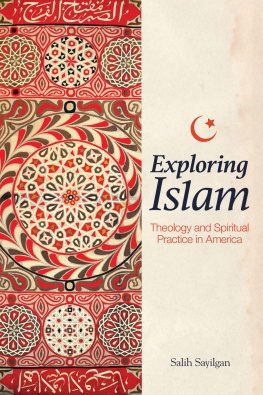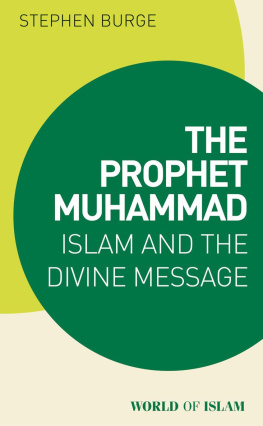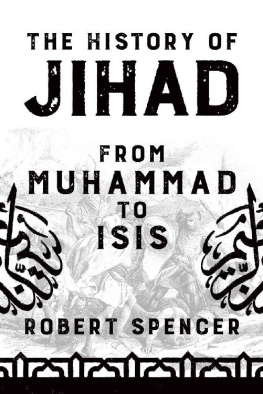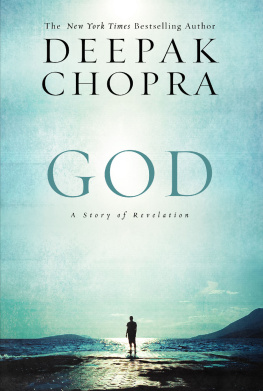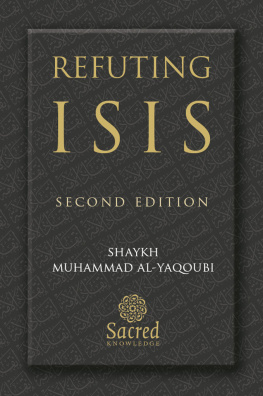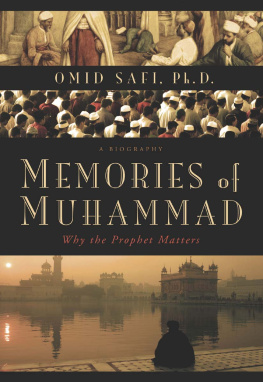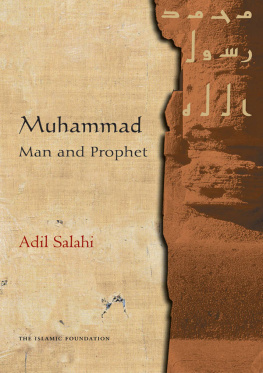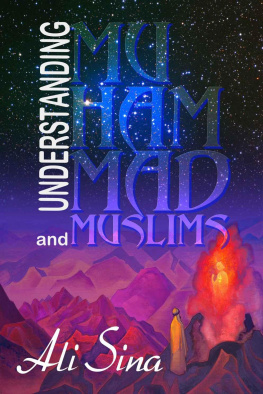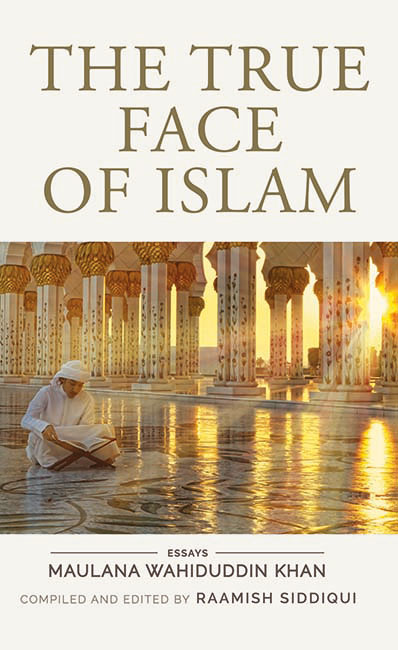
THE TRUE
FACE
OF ISLAM
ESSAYS
MAULANA WAHIDUDDIN KHAN
COMPILED AND EDITED BY RAAMISH SIDDIQUI

Contents
RAAMISH SIDDIQUI

THE TURNING POINT
T uesday, 11 September 2001 had passed like any another day in school until the news began to flash on television screens. It seemed like a scene straight out of a Hollywood moviewith planes crashing into the twin towers in NYC, people running for their lives and news channels hailing it as one of the biggest terror attacks in history. My young mind could not comprehend the gravity of what had happened. There were discussions all around in the media, it was headline news in the newspapers for days to come with many hailing Islam as a religion of terror. On 17 September 2001 The Telegraph published an article titled A religion that sanctions violence.
What this event did was trigger a series of questions in my mind. I started asking what is it that Islam actually teaches. Was I really born into a religion that sanctioned violence? Were we supposed to hate non-Muslims? Why is it that women needed to hide behind the veil? And the one that bothered me the most: Did God sanction killing? These and many more such questions kept haunting me in the years that followed.
The last decade has seen Islam constantly in the news owing to the propaganda by the disillusioned radical wing which has instilled negative views in the minds of men and women making it difficult for them to decipher the true religion or differentiate between extremist and real Islam. I realized this in discussions at school, college and work. The problem was much more significant than it appeared because it made one live in a contradiction of sorts where neither the questions one had were answered nor ones belief ever attained a level of conviction.
But despite that, I too, like many of my co-religionists, had developed a mistaken sense of knowing the religion of Islam. I had been reading the Quran since a young age, performed prayers five times a day, observed fast in the month of Ramadan and led a life within the confines of the religious teachings. But the acid test of my learning used to be the discussions where the sheer irrationality of the arguments had me speechless. They lacked clarity and rationale, people would go on debating in vain, refusing to look beyond blind faith and put their ideas to the test of logic. They continued to tread the path of hatred and negativity disguising the real Islam.
A positive mind is the bedrock of positive ideas and a negative mind works towards self-destruction. The choice is ours. Being born in a secular country, I have never faced any discrimination because of my religious identity. In respect, rights and responsibilities I have been treated as an equal. There have been exceptional opportunities to grow and develop in this great nation! My ancestors hailed from Deoband, Uttar Pradesh, and were among the founding members of Darul Uloom. India provided an environment absolutely conducive to the establishment of one of the biggest Islamic seminaries in the world.
Not many facts are known about this institution. My lineage, however, gave me an opportunity to see that world up, close and personal. Dubbed as the birthplace of extremism, Darul Uloom is in reality only an institution where students are taught the religious texts. The disrepute owes to the erroneous interpretation of Islam, where most people fail to distinguish between the actions of the followers of Islam and the real teachings of the religion.
Let us understand this with an example. In order to understand the idea of democracy, we must not take the reference of the world as we see it today. The correct way to understand it would be to review the original principles that were laid out by the founders of democracy.
This distinction became clear to me when I began to understand the writings of my grandfather, Maulana Wahiduddin Khan. My first learning was that Islam and Muslims are two different entities. We must view Muslims in the light of Islam and not vice versa. This explanation struck me like light. I realized that the root cause of all problems of the Muslim community was in the erroneous interpretations of the Quran and the sayings of the Prophet (peace be upon him).
WHY THIS BOOK?
My interactions with people from different backgrounds have been a strong motivation for me to compile this set of essays and bring them out in the form of a book. Through this work, I hope to bring clarity in the minds of the many who like me have been grappling to find answers to their questions. This book is an attempt to clear the dust of interpretation which has shrouded the Islamic Scriptures. And after performing intensive research, I am convinced that the writings of Maulana Wahiduddin Khan are the conclusive answers that will put these restless minds to rest.
ESSENCE OF THE BOOK
This collection of essays takes a deep dive into various issues concerning the religion of Islam. Its endeavour is to bring to light the real image of the religion. This is what inspired the title of the book The True Face of Islam.
The book aims to clarify Islams views on peace, extremism, coexistence, religion and treatment of women among other topics. The essays seek to throw light upon subjects like adjustment and gratitude that form the cornerstone of peaceful coexistence in the present world. Adjustment is the first step to building a peaceful society. Often, the same individuals who are able to manage difficult situations at home fail to do so in an external environment. They are unable to recognize the contribution of the society at large in creating an atmosphere conducive to everyday living and growth. We are all taught in school that man is a social animal but when time comes to realize this and to appreciate the contribution of those around us, we often fail to do so.
Maulana says, Man does not live on an island. This means that he would have to inevitably learn to adjust with the fellow human beings around him. Adjustment comes with patience. In a discussion Maulana once said that the Creator has given one of his traits to mankind which, if they realize, they can understand and appreciate the entire creation plan of God. Curious, I asked him what this trait was. He said this trait was patienceSabrwhich ought to be exercised despite provocation.
The question that arises here is why one should exercise patience upon being provoked. Will it not be deemed as cowardice? But is this not what we do in our family! Do we not adjust and exercise patience with our family members? The act is the same, then why is the perception different? While in the family we have a strong sense of bonding and love, in society why do we not recognize and appreciate the contribution of others in our life?
I used to often get surprised on seeing my grandfather consume the very last droplet of water in a glass! One day when I asked him about it, he told me that he did it because he felt the water he was drinking could come to him only because of the efforts of an entire society, from those who had made the glass to those who had cleansed the water to those who had made it reach his homehow could he waste it?
This was a revolutionary explanation the acknowledgement of the visible yet unseen contributions of those who have had a role to play in the extraction of the water. This should instill a strong sense of gratitude and love towards all. According to the Quran, God created this mass of humanity from one single parent.
Next page

